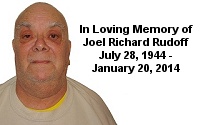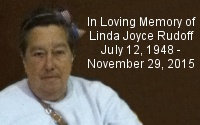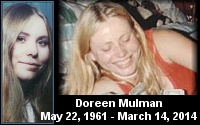| Ghostbusters II: Starlog #140 - Bill Murray Interview » |
(Empire magazine, August, 1989)
published in the June 1, 1989 issue of Rolling Stone magazine.]
[TRANSCRIBER'S NOTE: The copy of the magazine I have is damaged, so some of the text was lost. Most text is identical to the Rolling Stone version, so I was able to restore most of it from that. However, Patrick Goldstein used a few different sentences, so some minor bits of text is missing from this transcription where noted.]
Ivan Reitman is clapping his hands. "We're getting there, we're getting there," he says to Bill Murray, who's slouching at a table in the middle of a posh restaurant. "But you gotta crank it up a little. You're still a quart low."
"I'll tell you what," says Murray, who's been eagerly sampling the bright chunks of carrots on his plate. "I'm getting a little low on vegetables."
For the past eight hours, Reitman, Murray and Sigourney Weaver have been sweating under the hot lights in this Toluca Lake location, near downtown Los Angeles, trying to polish off a key scene for the movie Ghostbusters II, the most anticipated comedy sequel in America this summer. Darting from table to table in a white dress shirt and black slacks, Reitman looks more like a harried waiter than one of Hollywood's highest-priced comedy filmmakers, the director of Twins, Legal Eagles, Ghostbusters, Stripes, and Meatballs and the producer of Animal House.
He ducks behind his video monitor and focuses on Murray and Weaver. Even with boom mikes lurking in the background, it's a cozy moment. Playing Dr. Peter Venkman, the wisecracking leader of the Ghostbusters crew, Murray is in the midst of wooing Weaver with champagne, caviar and the doctor's trade-mark self-mocking charm. It's the last week of a three month shoot, and Reitman is eager to get this scene in the can. He calls for quiet. Suddenly Murray stands and waves his napkin in the air. "Correct me if I'm wrong," he says, "but isn't this double Academy Award nominee Sigourney Weaver's last shot of the movie?"
The crew cackles with glee. Throughout the day, whenever work has been halted by technical delays, Murray has lectured the crew about "keeping our double nominee waiting," a reference to Weaver's being up for Oscars for both Best Actress and Best Supporting Actress (for Gorillas In The Mist and Working Girl; she would win neither).
Having worked with Murray over the last 15 years (as producer of The National Lampoon Show and on Meatballs and Stripes), Reitman knows his meal ticket thrives on playing the room before each shot. At 39, Murray is one of Hollywood's reigning kings of comedy. Though his Saturday Night Live days are nearly a decade behind him, he still craves the roar of the crowd, even if laughter is coming from an audience of burly crew members and awe-struck extras. "You're right, Bill," Reitman says. "It's her last close-up."
Murray smiles. "I say if she blows this scene, maybe she doesn't deserve the awards."
The crew hisses in mock outrage.
"No, no," Murray says. "She thrives on the pressure."
From across the table, Weaver grins and bears it.
Murray leans over to her. "You know," he whispers, "you're not such a big deal when you're working with actors as tall as you are."
Weaver, who's five feet eleven, giggles helplessly.
"That's right," says Murray. "You can't work with Mel Gibson forever!"
Finally, Reitman calls for action. The scene is Dr. Venkman's last chance at romance. As the camera rolls, the doctor coos, "So ... making any New Year's resolutions?"
His love object tosses back her hair and coolly replies, "I want to stop getting involved with men who aren't any good for me."
Venkman is crushed. "Does that start exactly at midnight tomorrow?" he asked. "Or could you maybe hold off for a few days?"
Reitman beams. "It's a take." The crew cheers. Weaver stands up, merrily spins around and takes a bow.
Murray is delighted too. When the crew's applause dies down, he stares at Weaver's chest, tilts his head and raises his eyebrows. "Is it just me," he asks, "or can everyone see through Sigourney's dress?"
Seeing the spirit here, it's easy to forget that this is the set of a $30 million movie whose success this summer could give Columbia Pictures a much-needed dose of box-office credibility -- and whose failure could deliver a knockout blow to the ice-cold studio.
Over the past year, Columbia has been staggered by such flops as True Believer, Physical Evidence, Vibes, Things Change, The Beast, and Rocket Gibraltar. Punchline, its ballyhooed Tom Hanks-Sally Field comedy, grossed only $21 million. (Even Columbia insiders admit the studio's most profitable film of 1988 was probably Spike Lee's low-budget School Daze, a success marred by the fact that Lee publicly bad-mouthed Columbia for "ghettoizing" the movie's release.)
"You better believe Ghostbusters is a priority," says Columbia president Dawn Steel. "In the dollars-and-cents point of view, it's probably the most important, eagerly awaited sequel in the history of Columbia Pictures."
Almost all Hollywood moguls are sequel crazy these days. It's easy to see why. With their brand-name titles, familiar faces and easily recognizable story lines, sequels are considered box-office studs. No one made six installments of Police Academy trying to win an Oscar. Whether it's Rocky IV, Rambo III or The Karate Kid, Part II (which actually made more money than the original), sequels are irresistible to studios -- movies with a build-in audience.
This summer's Roman-numeral parade began here on May 23 with Paramount's Indiana Jones and the Last Crusade. The studio has a pair of warhorses set to follow, Star Trek V: The Final Frontier and Friday the 13th Part VIII: Terror in Times Square. In addition to Ghostbusters II (which opened June 16), Columbia has Karate Kid, Part III, while Warners is putting its bets on Lethal Weapon 2. To add to the congestion, several smaller studios have date-night fodder out as well, including Nightmare On Elm Street V and Eddie And The Cruisers II: Eddie Lives, both due in theatres by late August.
Ghostbusters II; with its celebrity-studded cast (Murray, Weaver, Dan Aykroyd and Harold Ramis all return) and instant name recognition gave it a great opening weekend; but it needs to stay near the top of the box office charts well into August to make a run at the coveted $100 million mark. And it's not always possible to handicap summer-sequel duels. Last year, many industry experts predicted Rambo III would trounce "Crocodile" Dundee II in the Memorial Day-weekend war. Instead Croc devoured Rambo, which earned barely half of its expected $100 million booty.
If Ghostbusters II does a belly-flop like Caddyshack II, it will be a gloomy summer on the Burbank lot. "It's pretty scary, because the summer is so jammed with product," says Steel, who's spent much of her 18 month tenure at Columbia fencing with rumors of an impending studio sale (to Sony) and of her own imminent departure (when in fact she has gained clout since Columbia merged with Tri-Star,its sister studio). But as a consummate Hollywood power player, Steel is ready to roll the dice. "It's a mine field," she says. "But it's summer, so every night is Saturday night."
The original Ghostbusters was released in 1984. Buoyed by an infectious comic spirit (and a chart-topping Ray Parker Jr. title song), it ended up making $220 million as the top-grossing comedy of all time. Yet despite these unimpeachable box-office credentials, the sequel was once a Hollywood orphan, a project without a patron.
When David Puttnam became head of Columbia studios in 1986, he showed a noted lack of enthusiasm for Ghostbusters II, to the point of considering making the film with a new, and lower-salaried, cast. Specifically, he was not eager to employ Murray. In a speech before a British-American Chamber of Commerce banquet, he allegedly dismissed Murray as "an actor who makes millions of movies but gives nothing back to his art. He's a taker." Puttnam later claimed he was misquoted, but others at the banquet confirmed the account. Either way, reports of Puttnam's speech chilled his relations with Murray.
As it turns out, Murray wasn't so keen on reviving Ghostbusters either. After the film's release, when he was at the peak of his career, the former Saturday Night Live star appeared in a film version of Somerset Maugham's novel The Razor's Edge. The movie quickly flopped at the box office. Dispirited, Murray dropped out of sight for nearly four years. As for the Ghostbusters sequel, Murray now says, "I really didn't want to do this movie for the longest time."
Then came the lunch.
By late 1987, Puttnam had been deposed as studio chief at Columbia, replaced by Dawn Steel. A savvy, acerbic executive with a healthy respect for Hollywood's star system, Steel knew a Ghostbusters sequel was a top priority with her corporate bosses. "When I was being interviewed for this job," she says, "it was one of the first things we talked about."
Enter Hollywood agent extraordinaire Michael Ovitz, whose powerful Creative Artists Agency talent agency is famous for packaging star vehicles -- and conveniently represents the 'Busters team of Murray, Aykroyd, Ramis and Reitman. Ovitz knew a summit meeting was vital. Not only was Murray wary of making a sequel, but a certain amount of ill will had festered among key 'Busters teammates. Hollywood rumourmongers quietly theorised: Were there bad feelings about profit sharing from the first film? Had resentments built up over unrealised projects in the intervening years? No one was eager to discuss just how much ill will had accumulated, but as Ramis diplomatically puts it, "There was a little air to clean before we got going."
The lunch was in a back room at Jimmy's, a Beverly Hills showbiz restaurant. In attendance were Murray; Ramis and Aykroyd (who would write the sequel); Reitman (who'd again direct); Ovitz; and Ray Kurtzman, CAA's head of business affairs.
Determined to make the lunch a festive occasion, the CAA chieftains had decorated the room with plastic ghosts and other merchandising trinkets left over from the lavish advertising campaign for the original film. According to Reitman, lunch ran nearly four hours. As everyone arrived, prospects for Ghostbusters II looked dim.
Murray had been away from the screen for so long no one knew if he could still carry a film. Certainly Aykroyd couldn't, not after Spies Like Us, Doctor Detroit and The Couch Trip. Ramis had been writing or directing such fluff as Armed and Dangerous and Club Paradise. Reitman was still seething over Puttnam's lack of respect for the original: "I felt insulted because he always talked about Ghostbusters in such condescending tones. It was 'I like Ghostbusters, but what I'd really like to do...' "
"I think walking into the meeting no one really felt we'd make the movie," Murray says. "But in the course of lunch we had so many laughs and so much fun that it became clear we'd really enjoy working together again."
According to other participants, Murray himself was the biggest stumbling block. He had a fear of being roped into making a schlocky sequel simply for the prospect of a big payoff. "Bill is very suspect of people's motives." says Ramis. "I think he wanted to make sure we were doing this for the right reasons, not just because CAA had all these computer printouts saying that a certain audience percentage or likability was there."
Once the hatchets were buried and Murray committed to the project, there began what Ramis describes as "a year of deal making." High-rent deal making. According to Columbia sources, Murray, Aykroyd and Reitman are working for minimum scale but will share a tidy percentage of the film's profits, a potentially lucrative deal similar to the one Reitman, Danny DeVito and Arnold Schwarzenegger enjoyed on Twins.
By keeping salaries to a minimum, Columbia has been able to make the film for close to $30 million. Studio sources say if the stars had taken their customary salaries up front, the film could have cost close to $50 million.
"We'd much rather pay a piece of the profits than the huge salaries," says Steel. "This way we're saying, 'Take the risk with us. Then we're partners.' "
When the film opens, the 'Busters have gone bust. Murray is hosting a psychic-phenomena cable-TV show. Aykroyd is reliving his ghost-busting triumphs at children's birthday parties. Ramis, who plays the outfit's techno-wizard, has retired to his lab, obsessed with research into the effect of human emotional states on psycho-magnetic energy fields.
Across town, Sigourney Weaver (as Murray's former paramour) has married and divorced another man and is raising a baby boy while working as a restorer at the Manhattan Museum of Art. When her tyke's pram mysteriously heads off into oncoming traffic, she realizes sinister forces are again at work.
Who's she gonna call?
"First off, we wanted to deal with the success of the Ghostbusters -- or nonsuccess - which we thought would be fresher and more unusual," says Ramis, who also wrote parts for 'Buster number four, Ernie Hudson; Annie Potts (who's back as the team's long-suffering secretary) and Rick Moranis (who returns as their accountant and newly accredited attorney). "But the moral issue was also important to us. The source of the slime would come from negative human behavior. Comedically, it suggested, what if everyone in New York City had to be nice for 48 hours?"
Following that premise, Ramis and Aykroyd's script shows the malevolent gunk peacefully at rest -- until aroused by negative human energy. In one scene, Ramis demonstrates the principle: He shouts, "You ignorant disgusting blob!" and the slime starts to bubble and swell; he and Aykroyd croon Kumbaya at it, and the slime shrinks back.
The slime itself is made of Methocel, a vegetable-based biodegradable jelly laced with red food colouring, and the slime lab works long hours to produce it. Methocel loses its colour if it's not made fresh daily, and the movie requires a staggering 100,000 gallons of it.
So, is this a comedy with a social conscience? "I guess you could say it's a metaphor for urban decay," says Ramis. "You feel it in any big city -- you wonder where it's going to stop, how bad things can get. It's just our way of saying that people need to come up with humane solutions."
"It's not like we're sending a lot of messages here. There are some comedies that satisfy the requirements of art and some that are gratuitous and pandering, and we like to think" -- Ramis laughs -- "that we're somewhere in between."
"In American film, every generation has a guy who speaks for them, who links them to their psyche," says Ivan Reitman. "There's always been an ironic commentator, from Groucho Marx and W.C. Fields to Bob Hope. It's someone who can speak truthfully, but with irony and sarcasm and black humour. But in a way that you like them. For our generation, it's definitely Bill Murray."
"The only real fun is the acting part of it," says Murray. "The rest of it has so many negatives to it. All the media stuff? It's a lot of crap." He's speaking from his trailer on the set, taking swigs from a bottle [text missing] surrounded by lumps of old clothes and stacks of scripts.
"I'm sure I haven't lived up to my potential," he begins, in response to a question about the impact he's has on the big screen [text missing] his revolutionary start on TV's Saturday Night Live. "I've only made eight movies -- and that's not a lot. It takes so much longer."
He points out the trailer window toward a huddle of crew members. "These people here have worked on hundreds of movies. If you're working with your buddies, you have someone to share the pain with. But if you don't have someone to share the pain with..." He frowns. "You end up miserable."
After The Razor's Edge bombed, Murray took nearly four years off, living in Europe, spending time with his family. "I got to live a little bit of life," he says, lighting a cigarette. "Living a public life takes so much out of your time. The pressure gets to you. And I wasn't able to live a life and have a career."
While Murray was away, Tom Hanks, Michael Keaton and even Steve Guttenberg became leading men of comedy. But Murray insists he didn't miss Hollywood. "I really can't say there were any films I really missed making," he says, starting to pace. "I'm lucky. People used to think that if you took years off, people would forget you. But with TV, and Saturday Night Live being in reruns everywhere, they can see you on the dial every night."
Did the time off rejuvenate him?
"Well, I became more of a person when I was away," he says, hunting for a match. "And the more of a person you are, the more of an actor you are. I was really surprised. The first couple of weeks on Scrooged, I was a little rusty. But I was better as an actor. I'd just soaked up things I could give out."
Murray seems ambivalent about the trappings of success. "A lot of people get pleasure out of the rich part," he says. "I don't know. I was broke all my life till I became successful, so I had to worry about things like paying my phone bill. Now I don't."
"Fame has lots of negatives," he adds softly. "People who aren't famous can't believe fame is a burden. But, oh, it can be. You lose your privacy and you never get it back."
"I think the reason people have problems is there's no training for being famous. You can train to be an actor -- or a mountain climber. It's so weird. They can train you to be an astronaut and walk on the moon. But they can't train you to be famous. It's indescribable."
All day long, strangers have sidled up to Murray, asking for autographs, squeezing next to him, snapping his picture.
"When you're a celebrity, you become very self-conscious," he says. "You become aware of being watched and stared at. Suddenly you're meeting a lot more people, but the percentages don't get any better."
The percentages? Murray flashes a grin. "You may have ten friends in your life," he says. "But you don't get any more friends, percentagewise, when you're famous. Instead of having a drink and watching a basketball game, you're signing autographs at 1:00 a.m."
Murray is wanted on the set. He takes a long swig from his bottle of water. "I got into acting to get out of the house," he says, closing his trailer door behind him. "And to stay in it, you have to enjoy it. When you don't have fun, it's terrible. So, I'm trying to find ways to make the work easier on my system. Emotionally, I know that if you're having fun, you're somehow doing good work. But intellectually I don't know if I believe that. So I'm still trying to find ways to do the good work and enjoy it too."
A makeup woman is dabbing Murray's forehead when he spots a celebrity visitor across the room. Most film stars jealously guard their energy reserves. But once Murray's voltage meter starts humming, he seems to almost have to spew a shower of comic sparks. Murray is up. He's out of his chair, twirling an imaginary microphone cord. "Myyyyy prerogatiiiive," he croons, slithering around the room as if he's back on Saturday Night Live.
Across the room, Bobby Brown is speechless with delight. The shy, baby-faced pop star is cracking up now. Having a number one hit is one thing, but having Bill Murray parody your act ... now that's show business. Soon Aykroyd and Hudson, still in their slime-drenched 'Buster togs, are congratulating the young star.
It's no wonder the new dance-music king is getting such star treatment: He's agreed to record songs for the movie. Reitman remembers how much momentum Ray Parker Jr.'s theme song gave his first film, and he's eager for another hit. His $30 million movie is slotted for a nationwide blitzkrieg and he has found himself searching for every advantage. Reitman and his stars were doing reshoots of special-effects sequences as late as the first week of April. And while the camera crew set up scenes, Reitman would duck into the cutting room to oversee his team of editors. Even after he'd printed his favorite take, he would sometimes turn Aykroyd and Murray loose on another one.
Tonight, the Ghostbusters are shooting scenes beneath street signs that say, E. 77th, and 1st Ave. Traffic is bumper to bumper, with a New York Times deliveryman squawking at a grumpy Yellow Cab driver. Soon a New York City Transit Authority bus is in the act, adding its insistent horn to the noisy dispute.
Of course, this is all movie magic. This is still L.A., downtown L.A. to be exact, normally a deserted isle, especially on a drizzly, cold spring night. Two blocks away, you can find a platoon of skid-row bums huddled under cardboard boxes, sharing sips of wine.
On the set, several hundred extras are milling around a "crowded Manhattan intersection". Posing as Con Ed repairmen, the Ghostbusters are on the hunt for slime. Ramis is jackhammering a hole in the middle of the street. Just when it looks like he's hit pay dirt, a patrol car stops to investigate.
The scene is not going well. Generator fuses are blowing out. The crew is cranky. Murray is yawning. It's no wonder Reitman is wearing a groove in the sidewalk behind his camera position. When you're rushing to finish a $30 million movie, time is money, the meter is running. He quickly decides what is ruining the pacing. The cop car isn't leaving the scene fast enough. "That is the slowest cop car I've ever seen," Reitman growls.
Murray and Aykroyd are sipping coffee in the corner, offering eavesdroppers a comedy critique. The topic: a recent appearance by Eddie Murphy on The Arsenio Hall Show. Asked how he liked working with director John Landis on Coming to America, Murphy replied, "He has a better chance of working again with Vic Morrow than he does with me."
Aykroyd thought the quip was in bad taste -- Vic Morrow was killed in a controversial helicopter accident while filming Landis's segment of Twilight Zone -- The Movie.
"Awww, come on," Murray says. "You gotta admit it. That's funny."
Aykroyd wags his head. "No way."
"Come on," says Murray. "It was a good line. You had to laugh, didn't you?"
Ramis isn't laughing. Over by the manhole, he's jackhammering on a full stomach. "The chili is shaking up in there with the bagel," he says. "And the coffee is going up and down."
During times like this, comedy directors wonder why no one takes their work seriously. "Frankly, I was surprised by how little respect the first Ghostbusters film got," Reitman says during a lull in the production. "I thought finally we'd get some. But so many people wrote it off as just another action comedy. The only consolation is that at least we got an extraordinary amount of respect from our audience, who came over, and over, to see it."
Then Reitman is clapping his hands again, nervously eyeing his watch. "Come on, guys," he says. "Let's shoot it!"
His cameraman is aghast. "No rehearsal?"
Reitman shakes his head. "Nah, let's go," he says. "There's so much here. We've got a long night. Let's shoot it!"
To crank up his energy, Murray is telling the crew tales about feeding Sigourney Weaver gags for a recent Tonight Show appearance ("All the material we gave her bombed!"). With his cornball deadpan, Ramis is getting laughs by trying to lift the jackhammer out of the manhole. Aykroyd is working on a ferocious double take.
The night's scene concludes with the three staring down the manhole, then at one another -- no one is volunteering to slide down into the slime-filled sewer. On the eighth take, they're completely in sync.
Who'll hit the sewers tonight? Ramis looks at Murray. Murray eyes Ramis. Then they both slowly swivel their heads, staring at Aykroyd. He rolls his eyes skyward, praying for divine intervention. His woeful gaze, painfully funny.
Reitman yells, "Cut! That was perfect."
Bill Murray starts hopping up and down, clapping his hands. "Who are these guys?" he asks. "They're good. You know, they're really good!"
Search (Reference Library Only)
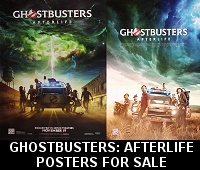

(Ghostbusters Amazon Store)

Please be aware that as an Amazon Associate, I earn a very tiny commission from purchases made though the Amazon links on this site.


|
COMMUNITY LINKS
NEWS • Ghostbusters Wiki • GB News • GB Fans • Ghostbusters Mania • GB Reboot Facebook • Proton Charging News Archive FORUMS • GB Fans • EctoZone OFFICIAL • Ghost Corps Facebook • Ghostbusters Facebook • Ghostbusters YouTube • Ghostbusters.com |

( MY COMPARISON REVIEW )
( AVOID SHIPPINGEASY/STAMPS.COM )
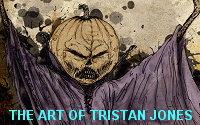
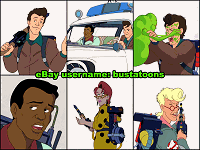
U.S. eBay (Ghostbusters stuff)
U.K. eBay (Ghostbusters stuff)
